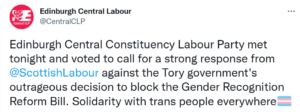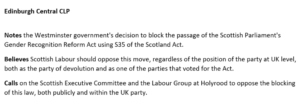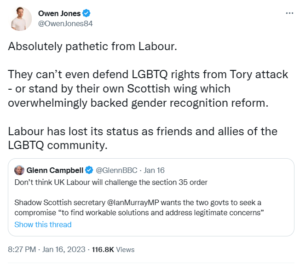This solidarity appeal and the initial signatories, that include members of the French National Assembly and the European Parliament, was originally published on 20 January 2023, in French, on the independent website Mediapart (mediapart.fr). This English translation is republished from ‘Europe Solidaire San Frontières’ (ESSF – Europe Solidarity Without Frontiers, an association for international solidarity): https://www.europe-solidaire.org/spip.php?article65392 It is also available in PDF form in English, French, Kurdish, Persian, German, Spanish and Italian languages (links also here).
Signatories are still sought – contact info@ecosocialist.scot for how to sign.
Iran: Support for the “Woman, Life, Freedom” Uprising – No to Executions !
Since the murder of Jina-Mahsa Amini on September 16 by the morality police, a popular uprising unprecedented in its scope, depth and duration has shaken the Islamic Republic of Iran. In less than 48 hours, the slogan “Woman, Life, Freedom” spread throughout the country, then around the world.
The fight for the fall of the Islamic Republic is on
Soon other slogans flourished: “Death to the dictator”, “Death to the oppressor, be it the Shah or the Supreme Guide”, “Bread, Work, Freedom”, “Poverty, corruption, high cost of living, we will go until the overthrow”.
This radical protest movement brings together women, young people, national minorities, workers with or without jobs, in a total rejection of this theocratic, misogynistic and totally corrupt regime. The uprising is anchored in the long term and affects more than 160 small and large cities. With more than 50% of the population below the poverty line and the absence of elementary democratic and social rights, it is the whole system that the people of Iran want to overthrow.
Calls for strikes are increasing, especially among university teachers, workers in petrochemicals, steelworks in Isfahan, public transport in Tehran and its suburbs, truck drivers… The strikers suffer dismissals , arrests and torture.
Fierce and unlimited repression
To date, the repression has caused more than 500 deaths, including 69 minors, thousands of injuries, more than 19,000 prisoners and missing persons, kidnappings. In Iranian Kurdistan and Sistan Balochistan, the Revolutionary Guards are waging a bloody war against the rebellious population. Kurdish towns are undergoing a state of siege that does not say its name.
The violence of this criminal regime knows no bounds. Numerous testimonies attest to the incredible brutality of the conditions of detention aimed at breaking the determination of the detainees. Of the prisoners are tortured, raped, beaten to death.
In order to create a climate of terror and put an end to protest, the judiciary pronounces increasingly heavy sentences against demonstrators. Despite this, the mobilization does not weaken. With courage and determination, students, young people, women, workers, artists and journalists continue to challenge the regime, and it has decided to take it a step further.
The proliferation of death sentences
For the simple fact of having demonstrated, at least 65 people (including 11 women and five children) have been charged with “enmity with God”, “corruption on Earth”, insurrection or murder. The judiciary connects parodies of trials, without any right of defense and multiplies death sentences.
After the executions of Mohsen Shekari and Majidreza Rahnavard on December 8 and 12, the Iranian authorities proceeded, on January 7, to hang Seyed Mohammad Hosseini and Mohammad Mehdi Karami. Their crimes: having dared to express their revolt in the face of the death of Jina-Mahsa Amini in Tehran or of Hadis Nadjafi in Karaj. The worst is to be feared for those who wait on the death row of Iran’s sordid prisons and more broadly for all prisoners.
The people of Iran must be masters of their destiny
In this context and faced with the spectre of a political and social revolution in Iran, the leaders of the great powers are working, more or less discreetly, for the constitution of a Transitional Council, bringing together all the currents of the opposition of the Iranian right, including the monarchists. These currents, liberal on the economic level and authoritarian on the political level, are the opposite of the dynamics of the mobilizations and the social and democratic aspirations which are expressed in Iran.
From the 1953 coup organized by the CIA and the British secret services against the Mossadegh government and its policy of nationalizing oil, to the Guadeloupe conference in 1979 where the heads of state of France, Germany, of the United Kingdom and the United States accelerated the Shah’s departure into exile and decided on his replacement by Khomeini, the great powers have always acted, unsurprisingly, in favor of their own interests against those of the peoples of Iran.
Contrary to the solutions imposed from outside, we defend a real campaign of international solidarity with all those who are mobilizing in Iran to put an end to the Islamic Republic.
To live up to the determination and courage of the Iranian people
The outcome of the current uprising will be decisive for the peoples of the region and the world. It is therefore our responsibility, within our means, to help the “Woman, Life, Freedom” uprising achieve its emancipatory aspirations.
Indeed, the repressive machine that is the Islamic Republic will not be broken without a powerful international campaign and without a strong mobilization of world opinion.
• We demand an immediate end to death sentences, executions and the abolition of capital punishment.
• We demand the immediate release of all imprisoned political and trade union prisoners, teachers, students, doctors, artists, activists and demonstrators, etc.
• We demand the establishment of an international committee made up of jurists, trade unionists, journalists and NGOs to carry out an independent investigation into places of detention in Iran.
• We support women’s fight for the right to control their bodies. We demand with them the abolition of all misogynistic laws as well as gender apartheid.
• We support the fundamental and democratic rights of Iranian men and women, whether they are Kurds, Baluchis, Arabs, Azeris, Lors, or Persians.
• We support the workers of Iran in their struggle for dignity, their rights to defend themselves through strike action and the building of trade unions and political organizations.
• We strongly demand from France and Europe the freezing of the assets of the highest leaders of the Revolutionary Guards and the Islamic Republic, including those of the Guide Ali Khamenei and his entourage, the total amount of which is estimated at $95 billion. These fortunes acquired through the plunder of resources, the overexploitation of workers, predation and corruption must return to the peoples of Iran.
• Like what was done against the Russian oligarchs, we demand the freezing of the assets of the Iranian oligarchs.
• We demand the lifting of banking and commercial secrecy in France, in Europe and in the world to block the wealth accumulated by the leaders of the Islamic Republic, the Revolutionary Guards and the companies linked to them.
• We demand the cessation of all industrial, economic and diplomatic collaboration with the Islamic Republic.
As signatories to this platform, we reaffirm our full and complete support for all those who fight in Iran for equality, social justice, democracy and against all forms of autocratic and authoritarian power.
We are at their side by all the means at our disposal, and we are committed to multiplying initiatives of solidarity with the peoples of Iran. Until the victory of this irrepressible revolutionary momentum!
Signatures:
1. Nicole ABRAVANEL, historian EHESS (France)
2. Gilbert ACHCAR, professor SOAS London (England)
3. Christophe AGUITON, alterglobalization activist (France)
4. Mateo ALALUF, professor emeritus of the Université Libre de Bruxelles (Belgium)
5. Tassos ANASTASSIADIS, journalist (Greece)
6. Valério ARCARY, National Direction of PSOL, (Brazil)
7. Behrouz AREFI, Socialist Solidarity with the Workers in Iran (France)
8. Janie ARNEGUY, Ensemble ! (France)
9. Rolando ASTARITA, Professor of Economics – Universidad Nacional de Quilmes (Argentina)
10. Manon AUBRY, European deputy LFI (France)
11. Clémentine AUTAIN, Member of Parliament for Seine-Saint-Denis (France)
12. Ludivine BANTIGNY, historian (France)
13. Alain BARON, international commission of the Union syndicale Solidaires (France)
14. Jean BATOU, professor at the University of Lausanne (Switzerland)
15. Abraham BEHAR, doctor (France)
16. Emma BELLE, British civilizationist, Savoie Mont Blanc University (France)
17. Olivier BESANCENOT, spokesman of the NPA (France)
18. Alain BIHR, honorary professor of sociology, University of Bourgogne-Franche-Comté (France)
19. Sophie BINET, general secretary of the UFICT-CGT, member of the CGT Executive Committee, leader of the women’s collective (France)
20. Laurence Boffet, spokesperson of Ensemble! (France)
21. Jean-Jacques BOISLAROUSSIE, Ensemble ! (France)
22. Alexandra BOJANIC, international sector of the FTUU (France)
23. Manuel BOMPARD, LFI deputy of Bouches du Rhône (France)
24. Michel BONNIN, director of studies at the EHSS, center of studies on modern and contemporary China (France)
25. Nicolas BOUCHAUD, actor (France)
26. Mickaël BOULOUX, Deputy of Ille et Vilaine (France)
27. Alima BOUMEDIENE, lawyer (France)
28. Tiago BRANQUINO, cultural and political activist, trade unionist, elected politician (Switzerland)
29. Nicole BRENEZ, academic (France)
30. Michel BROUÉ, mathematician (France)
31. David LIBREROS CAICEDO, professor, Universidad Nacional de Colombia
32. Raul CAMARGO FERNANDEZ (spokesman of Anticapitalistas – Spanish State)
33. Ana CAMPOS, doctor (Portugal)
34. Robert CANTARELLA, director (France)
35. Daniel CERIOTTI, nutritionist (Uruguay)
36. Fernando CHARAMELLO, trade unionist (Uruguay)
37. Claude CALAME, historian, director of research EHESS (France)
38. Salavatore CANNAVO, journalist – Jacobin Italia
39. Carmen CASTILLO, filmmaker (France) 40.
40. hélène CHANTEREAU, CGT info’Com trade unionist and Aplutsoc activist (France)
41. Lou CHESNE, ATTAC spokesperson (France)
42. Ramiro CHIMURIS, lawyer and economist (Uruguay)
43. Florence CIARVOLA, Ensemble! (France)
44. Herbert CLAROS, secretary for international relations of CSP Consultas (Brazil)
45. Adrien COLIN, town councilor in Vevey (Switzerland)
46. Eliana COMO, trade unionist, Management Committee of the CGIL (Italy)
47. Jorge COSTA, Bloco de Esquerdo (Left Bloc Portugal)
48. Pierre COUTAZ, international sector of the CGT (France)
49. Léon CREMIEUX, aeronautical trade unionist Solidaires (France)
50. Joseph DAHER, academic (Switzerland)
51. Bruno DALBERTO, trade unionist (France)
52. Christian DANDRES, PS National Councillor (Switzerland)
53. Cybèle DAVID, National Secretary of the Union syndicale Solidaires, in charge of international affairs (France)
54. Sonia DAYAN-HERZBRUN, sociologist (France)
55. Bruno DELLA SUDA, Ensemble! (France)
56. Sophie DESROSIERS, retired lecturer EHESS (France)
57. Bernard DREANO, president of CEDETIM (France)
58. Valérie DREVILLE, actress (France)
59. Penelope DUGGAN, editor International Viewpoint
60. Sabine ENDERS, ATTAC activist (France)
61. Behrouz FARAHANY, Socialist Solidarity with Workers in Iran (France)
62. Patrick FARBIAZ, PEPS (for a popular and social ecology) (France)
63. Silvia FERRARO, councilor of São Paulo, (Brazil)
64. Emmanuel FERNANDES Deputy of the 2nd district of Bas-Rhin (France)
65. Nejat FEROUSE, confederal adviser to the International Space of the CGT (France)
66. Marina FERRERUELA, deputy and parliamentary collaborator (France)
67. Berivan FIRAT, spokesman of the external relations of the Kurdish Democratic Council in France (CDK-F)
68. Jacques FONTAINE, Ensemble ! (France)
69. Téo FREI, activist of the climate strike (Switzerland)
70. gizelle FREITAS, Councilor of Belém (Brazil)
71. Bernard FRIOT, economist and sociologist of work (France)
72. Mario ROSSI GARRETANO, trade unionist (Uruguay)
73. Franck GAUDICHAUD, historian, University Jean Jaurès Toulouse (France)
74. Sigrid GERARDIN, national secretary in charge of women’s rights of the FSU (France)
75. Paolo GILARDI, teacher unionist (Switzerland)
76. Liliane GIRAUDON, poetess (France)
77. Matheus GOMES, State Deputy, Rio Grande do Sul (Brazil)
78. Alain GONTHIER, town councillor in Vevey (Switzerland)
79. José María GONZALEZ, Mayor of the city of Cadiz (Spain)
80. Sébastien GUEX, Honorary Professor, University of Lausanne (Switzerland)
81. Murielle GUILBERT, national co-delegate of the Union syndicale
82. Helena HIRATA, sociologist, emeritus researcher of the CNRS (France)
83. Marie HOLZMAN, sinologist and human rights activist (France)
84. 84. Jocelyne HALLER, deputy of the Ensemble à gauche at the Grand Council (Geneva)
85. Ernesto HERRERA, journalist (Uruguay)
86. Norbert HOLCBLAT, economist (France)
87. Carolina IARA, co-representative of the State of São Paulo (Brazil)
88. Chantal JAQUET, philosopher, professor at the University Paris 1 Panthéon-Sorbonne (France)
89. Claire JOBIN, sociologist, militant of the feminist strike (Switzerland)
90. Samy JOHSUA, member of the Scientific Council of ATTAC (France)
91. Leslie KAPLAN, writer (France)
92. Andy KERBRAT, deputy of Loire Atlantique (France)
93. Babak KIA, Socialist Solidarity with the Workers in Iran (France)
94. Aurore KOECHLIN, sociologist, feminist and anticapitalist activist (France)
95. Isabel KOIFMANN, trade unionist (Uruguay)
96. Pierre KHALFA, economist, Copernic Foundation (France)
97. Jacques KIRSNER, producer and scriptwriter (France)
98. Nicolas KLOTZ, filmmaker (France)
99. Hubert KRIVINE, physicist, (France)
100. Dominique LABOURIER, actress (France)
101. Michel LANSON, retired teacher (France)
102. Michel LAUVERS, historian university Côte d’Azur (France)
103. Michèle LECLERC-OLIVE, Professor of mathematics, sociologist. CNRS (France)
104. Olivier LE COURD MAISON, academic (France)
105. Charlotte LEDUC, LFI-NUPES deputy of the 3rd district of Moselle (France)
106. Irma LEITES, plenaria memoria y justicia (Uruguay)
107. Fred LEPLAT, Anticapitalist Resistance (England, Wales)
108. Elodie LOPEZ, member of the Grand Council of Vaud, Ensemble à Gauche, town councilor, décroissance alternatives (Switzerland)
109. Francisco LOUÇA, economist, University of Lisbon (Portugal)
110 Iza LOURENÇA, councilor of Belo Horizonte (Brazil)
111. Mickael LOWY, director of research emeritus at the CNRS (France)
112. Christian MAHIEUX, international trade union network of solidarity and struggles (France)
113. Jan MALEWSKI, journalist, editor of Inprecor (France)
114) Gilles MANCERON, historian (France)
115. Pierre MARAGE, professor emeritus at the Université Libre de Bruxelles (Belgium)
116. Maguy MARIN, choreographer (France)
117. Gustave MASSIAH, CEDETIM (France)
118. Sonia MEIRE, Councilor of Aracaju (Brazil)
119. Omar MENONI, trade unionist (Uruguay)
120 Roland MERIEUX, member of the animation team of Ensemble! (France)
121. Silvia Fernandes MICHELI, teacher (Uruguay)
122. Anwar MIR SATTARI, ecologist (Belgium)
123. Mathilde MONNIER, choreographer (France) 124.
124 – Robi MORDER, lawyer and political scientist (France)
125) Manuel AGUILA MORA, historian, autonomous university of Mexico (Mexico)
126. Noel MOREL, external relations, network libertarian communist platform (France)
127. Mariana MORTAGUA, member of the Portuguese Parliament (Portugal)
128. Olivier NEVEUX, academic (France)
129. Stanislas NORDEZ, director of the National Theater of Strasbourg (France)
130. Paula NUNES, co-representative of the State of São Paulo (Brazil)
131. Françoise NYFFLER, activist of the feminist strike and deputy of Ensemble à Gauche (Switzerland)
132. Danièle OBONO, LFI deputy of Paris (France)
133. Solenn OCHSNER, trade unionist, feminist strike and climate activist (Switzerland)
134. Andrés OLIVETTI, trade unionist (Uruguay)
135. Annick OSMOND, socio-anthropologist (France)
136. Ugo PALHETA, sociologist (France)
137. Mathilde PANOT, deputy of Val de Marne, president of the LFI group at the National Assembly (France)
138. Ian PARKER, professor University of Manchester (England)
139. Olivier PARRIAUX, professor emeritus at the University of Lyon-Saint Etienne (France)
140 – Henri PASCAL, sociologist (France)
141. Jaime PASTOR, political scientist and director of the review “Viento Sur” (Spanish State)
142. Roland PFEFFERKORN, sociologist, University of Strasbourg (France)
143. Elisabeth PERCEVAL, filmmaker (France)
144. Jean-François PELLISSIER, spokesman of Ensemble! (France)
145. Martyne PERROT, sociologist (France)
146. Serge PEY, writer (France)
147. Nicole PHELOUZAT, sociologist at CNRS (France)
148. Boris PLAZZI, CGT confederation secretary for international relations (France)
149. Christine POUPIN, spokesperson of the NPA (France) 150.
150 – Philippe POUTOU, spokesman of the NPA (France)
151. Stéphanie PREZIOSO, member of the National Council, Ensemble à gauche (Switzerland)
152. Nadège PRUGNARD, author, actor, director (France)
153. José Manuel PUREZA, professor, University of Coimbra (Portugal)
154. Martine RAIS, doctor (Switzerland)
155. Rebeca RIELA, economist (Uruguay)
156. Laurent RIPART, historian at the University Savoie Mont Blanc (France)
157. Teresa RODRIGUEZ, former deputy and spokesperson of Adelante Andalucía (Spanish State)
158. Ema Graciela ROMERO, lawyer (Uruguay)
159. 159. Pierre ROUSSET, internationalist, director of the online newspaper ESSF (France)
160 – Henri SAINT-JEAN, association leader (France)
161. Sara SALEMI, Socialist Solidarity with the Workers in Iran (France)
162. Pauline SALINGUE, spokesperson of the NPA (France)
163. Catherine SAMARY, alterglobalist economist (France)
164. Mariana SANCHEZ, journalist and editor, activist of the SNJ CGT and Ensemble! (France)
165 Cobas SARDEGNA, UNICOBAS (Italy)
166. Jacob SCHÄFER, trade unionist (Germany)
167 Janick SCHAUFELBUEHL, Associate Professor Faculty of Social and Political Sciences University of Lausanne (Switzerland)
168. Marc SCHLESSER, Décroissance Alternative (Switzerland)
169. Houshang SEPEHR, editor of the website Iran Echo – Socialist Solidarity with the Workers in Iran (France) 170.
170 – Yasmine SIBLOT, sociologist (France)
171 Cécile SILHOUETTE, Ensemble ! (France)
172. Francis SITEL, Animation team of Ensemble! (France)
173. Omar SLAOUTI, teacher, anti-racist activist, elected in Argenteuil (France)
174. Alda SOUSA, mathematician, University of Porto (Portugal)
175. Claude STAZAN, CEDETIM (France)
176 Isabelle STENGERS, philosopher (Belgium)
177. Quentin TALON, mathematician, town councilor in Montreux (Switzerland)
178. Daniel TANURO, ecosocialist author (Belgium)
179. Imad TEMIZA, secretary of the Palestinian Postal Service Workers Union (Palestine)
180. Benoît TESTE, secretary general of the FSU (France)
181. Julien THERY, historian at the University Louis Lumière Lyon 2 and president of the Media (France)
182. João TEIXERA LOPES, sociologist, University of Porto (Portugal)
183. Sylvie TISSOT, sociologist (France)
184. Marc TOMCZAK, teacher researcher at the University of Lorraine (France)
185. Pascal TORRE, deputy head of the international sector of the PCF (France)
186. Éric TOUSSAINT, political scientist, Universities of Liège and Paris 8, member of the International Council of the World Social Forum (Belgium)
187. Enzo TRAVERSO, historian
188. Josette TRAT, academic, feminist activist (France)
189. Stéphanie TREILLET, economist, Ensemble ! (France)
190. Anne TRISTAN (France)
191. Aurélie TROUVÉ, Member of Parliament for Seine-Saint-Denis (France)
192. Franco TURIGLIATTO, former Senator (Italy)
193. Charles-André UDRY, economist and director of the website Alencontre (Switzerland)
194. Mario UNDA, sociologist (Ecuador)
195. Miguel URBAN, MEP (Spanish State)
196. Roseline VACHETTA, former MEP – NPA (France)
197. Eleni VARIKAS, professor emeritus at the University of Paris 8 (France)
198. Christiane VOLLAIRE, Philosopher (France)
199. Léo WALTER Deputy of Alpes-de-Haute-Provence, parliamentary group LFI-NUPES (France)
200. Thomas WEYTS, SAP – Anticapitalist, (Belgium)
201. Youlie YAMAMOTO, spokesperson of ATTAC (France)
202. Erika DEUBER ZIEGLER, art historian (Switzerland)
203. Jean ZIEGLER, sociologist, internationalist, politician (Switzerland)
Photo copyright: DR
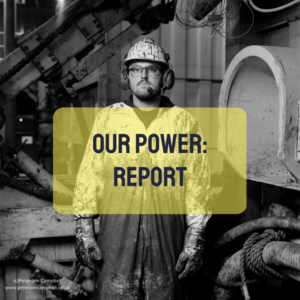

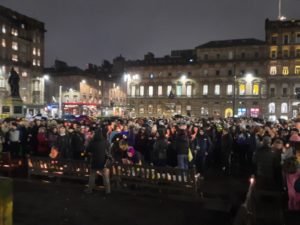
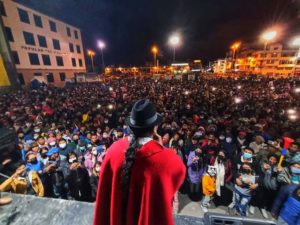 The Indigenous-led uprising in Ecuador in October 2019, and the similar national strike mobilisation in June 2022, have been two of the most dramatic, and successful, in a wave of big struggles and protest movements that swept the world in recent years – from Hong Kong, Iraq and Lebanon, to Chile, Colombia and now Peru and Iran. Thousands of indigenous people went onto the streets of Ecuador to demand reforms in agricultural payment, to tackle the cost-of-living and poverty, to defend indigenous communities and to protect the natural environment from destruction, exploitation and profit-driven extractivism. The indigenous movement marched on the national capital, winning support from workers’ organisations, from students and from the womens’ movement.
The Indigenous-led uprising in Ecuador in October 2019, and the similar national strike mobilisation in June 2022, have been two of the most dramatic, and successful, in a wave of big struggles and protest movements that swept the world in recent years – from Hong Kong, Iraq and Lebanon, to Chile, Colombia and now Peru and Iran. Thousands of indigenous people went onto the streets of Ecuador to demand reforms in agricultural payment, to tackle the cost-of-living and poverty, to defend indigenous communities and to protect the natural environment from destruction, exploitation and profit-driven extractivism. The indigenous movement marched on the national capital, winning support from workers’ organisations, from students and from the womens’ movement.


